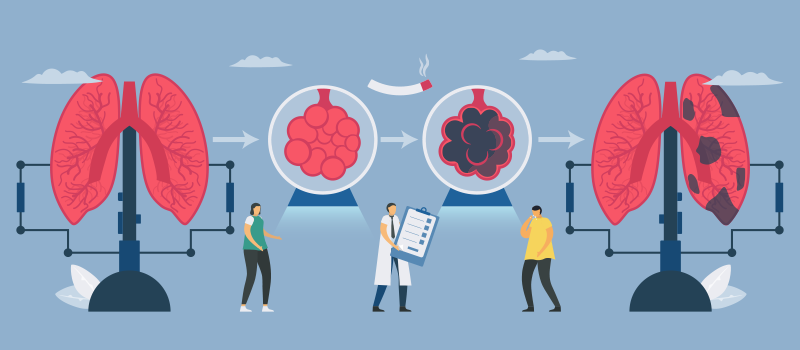Can Adults Get RSV?

Respiratory syncytial virus (RSV) is a very common viral respiratory infection. Most people think of RSV as a childhood illness. But RSV can infect adults too. Please continue reading to learn more about RSV in adults.
What is a respiratory syncytial virus?
Respiratory syncytial virus is a common respiratory virus. It causes an upper respiratory illness and also affects the lungs and lower respiratory tract. RSV usually causes a mild respiratory illness consisting of a cold and other associated symptoms. Most people recover from RSV infections with supportive measures like rest, fluids, and over-the-counter medications to relieve discomfort. However, some children and adults with underlying risk factors can develop more severe RSV disease and serious complications.
Who usually gets respiratory syncytial virus infection?
Respiratory syncytial virus (RSV) is very common among children. Most children have been infected by the time they are two years old.
Can RSV be passed to adults?
RSV can be passed to adults. It is a misconception that respiratory syncytial virus is purely a childhood disease. You can get repeated infections more than once in your lifetime, including during adulthood. Moreover, RSV in adults can cause serious respiratory illness.
Who is at risk of severe RSV infection?
RSV can cause a severe infection and respiratory illness in premature infants, children under two years of age, older adults aged 65+, people with chronic lung disease such as chronic obstructive pulmonary disease (COPD), those with chronic heart disease like congestive heart failure, those with neuromuscular disorders, and those with weakened immune systems.
How common is it for adults to get RSV?
The Centers for Disease Control and Prevention (CDC) reports that RSV infections lead to approximately 60,000-120,000 hospitalizations for severe disease in older adults 65 years and older. RSV also causes 6,000-10,000 deaths among adults 65 years and older. In addition, RSV cases are responsible for over 2 million outpatient visits, up to 80,000 hospitalizations, and 100-300 deaths in children 5 years and younger.
What are the RSV symptoms in adults?
Common symptoms of RSV infection include cold-like symptoms (a runny nose or nasal congestion), cough, sore throat, headache, low-grade fever, and fatigue. More severe RSV infection can cause a lower respiratory illness with flu-like symptoms, severe coughing, wheezing, pneumonia, difficulty breathing, difficulty swallowing, and even death due to respiratory failure.
Is RSV contagious?
Yes, RSV is contagious like many other respiratory infections such as the influenza virus and the common cold. RSV spreads from person to person through tiny droplets or secretions released from the nose or mouth when an infected person sneezes or coughs. When a healthy person breathes in the droplets containing the virus, they can get infected and develop respiratory symptoms. RSV disease can also be acquired through contact with contaminated surfaces on which infected respiratory secretions have landed.
How long does the RSV virus last in adults?
Most RSV infections cause mild symptoms in healthy children and adults that go away in 1-2 weeks. However, the cough from an RSV infection can continue for up to four weeks. Severe cases of RSV can last longer and might cause severe complications in high-risk individuals.
What is the treatment for respiratory syncytial virus (RSV)?
Most of the time, respiratory syncytial virus (RSV) causes a mild respiratory illness. Infectious disease experts recommend self-care and supportive measures to treat these viral infections. This includes getting some rest, drinking plenty of fluids, and using saline nasal drops, decongestants, throat lozenges, cough medicine, and over-the-counter fever reducers and pain relievers, as needed. A cool-mist humidifier can help relieve discomfort from RSV and other lung conditions by keeping the airways moist and easing irritation.
People who are at a higher risk (for example, younger children, people with heart or lung conditions, or those with a weakened immune system) can develop pneumonia and severe illness from respiratory syncytial virus. Call your healthcare provider if your or your child’s symptoms are severe. Go to the emergency room if you develop more severe symptoms of a respiratory illness, such as rapid breathing or trouble breathing.
How to prevent RSV infections?
There is no RSV vaccine. The best way to prevent RSV infection is to practice good hygiene. Wash your hands with soap and water frequently. Cover your mouth and nose with a tissue when you cough and sneeze. Avoid close contact (hugging, kissing, shaking hands, or sharing personal items like utensils), especially with people who are sick. Wear a face mask to control the spread of respiratory viruses. Clean frequently used surfaces such as door handles, countertops, and mobile phones with a disinfectant.
References:
- https://www.mayoclinic.org/diseases-conditions/respiratory-syncytial-virus/symptoms-causes/syc-20353098
- https://health.ucdavis.edu/news/headlines/can-adults-get-rsv/2022/11
- https://www.cdc.gov/rsv/research/index.html?CDC_AA_refVal=https%3A%2F%2Fwww.cdc.gov%2Frsv%2Fresearch%2Fus-surveillance.html
- https://www.ncbi.nlm.nih.gov/pmc/articles/PMC88938/












SOCIAL